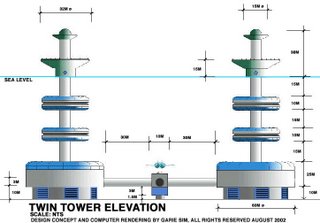Human Habitat: Unblocking Evolution
 Humans evolved near the tropics, then spread across the earth to occupy virtually every continent and large island except for Antarctica. Even in Antarctica and in the far north, humans maintain a permanent presence for scientific and military purposes. Humans learned to live in extreme heat, extreme cold, and at quite high altitudes. Humans even learned to spend long periods of time at sea, but always with a home port in mind.
Humans evolved near the tropics, then spread across the earth to occupy virtually every continent and large island except for Antarctica. Even in Antarctica and in the far north, humans maintain a permanent presence for scientific and military purposes. Humans learned to live in extreme heat, extreme cold, and at quite high altitudes. Humans even learned to spend long periods of time at sea, but always with a home port in mind.Humans seem to have gotten stuck for some reason, unable to take the next logical steps. Marshall Savage wrote a visionary book in 1992, The Millenial Project: Colonizing the Galaxy in Eight Easy Steps. The idea was to learn to live in more environments, including building cities on the sea, constructing earth orbiting habitats, moon habitats and cities, mars settlements, with eventual dispersion to the outer solar system and beyond. Here is a good place to catch up on the Millenial Project's ideas.
Anyway, the whole idea was to learn to adapt to increasingly harsh and difficult environments--to become more competent in dealing with hazards and threats in order to enhance our freedom of movement. With that enhancement of capability in mind, I want to look into the concept of undersea habitats.
Two of the websites incorporating the more expansive concept of undersea habitats that I had in mind, are this, and this. The habitat needs to be large enough to be considered a "community". It must be permanent and must contain a full set of industries, including medical, educational, financial, manufacturing, and service industries.
Such a habitat would have to be prepared to "hunker down" for weeks at a time, should surface conditions require it. That almost certainly means nuclear power, unless it were situated near the edge of a continental shelf, making OTEC available. Of course, with access to the surface you could have solar, wind, wave, and other sources of power.
NASA uses the Aquarius undersea habitat off Key Largo for astronaut training. Obviously any resident of an undersea habitat would learn safety training that would be the equivalent of what is required to survive in a space environment.

There is obviously no room for the neotenous in a potentially hazardous environment such as an undersea city, orbiting space colony, or asteroid habitat. Government schools are training citizens of North America to be victimised inhabitants of the impoverished neo-third world, not for an exciting future undersea or off-planet. Too bad.
Labels: Earth, evolution, extreme colonies, space settlements, space travel

0 Comments:
Post a Comment
“During times of universal deceit, telling the truth becomes a revolutionary act” _George Orwell
<< Home